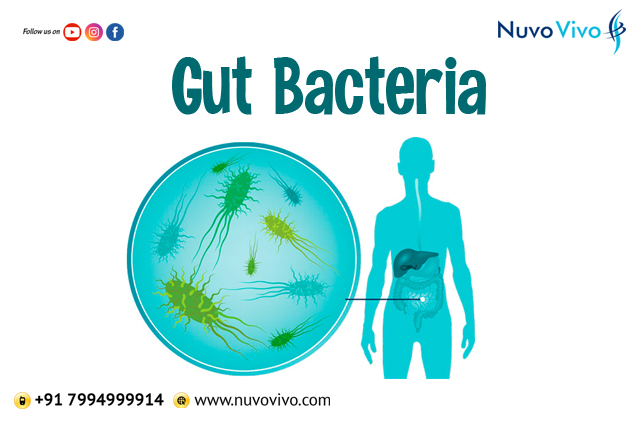” കാരണം ബാക്ടീരിയ!!”
(Translation – Reason Bacteria)
An advertisement by a famous FMCG Multinational has the above punch phrase in their tooth-paste commercial. But is all bacteria bad?
Not really!! I’m pleased to introduce to you “Human Gastro-Intestinal Microbiota” or, in simple words – Gut Bacteria.
Gut bacteria (microbiota / microbiome) is seen in the digestive tract – mainly in the small intestine and large intestine. They play a very important role in digestion and in the absorption of various nutrients.
An average healthy human being would have nearly 50 – 100 trillion bacterias of 300 – 500 different types. To put that number in perspective – you have more bacteria in your body than the total number of cells!
Role of Gut Bacteria
The role of gut bacteria goes beyond just digestion; it plays a very important role in immunity, cognitive functioning, your mood, etc
- A certain set of bacteria helps in digesting sugar. Infants digest the mother’s breast milk with the help of gut bacteria called ‘bifidobacteria’ (Refer 3).
- A few other types of bacteria are helpful in digesting fiber and converting them into short chain fatty acids (Refer 4)
- A few other types of Gut bacteria helps in synthesizing Vit-K (Refer 5).
- It even helps in improving the immunity and helping you fight infections from other harmful micro organisms (Refer 6)
- You would perhaps be surprised that, the gut bacteria also play an important role in your brain functioning and there by your psychological mood and behaviour as well! (Refer 7)
- Gut bacteria also help in relieving the IBD (Irritable Bowel Syndrome) and other Inflammatory Bowel Diseases (Chrons, Ulcerative Colitis etc). Natural probiotics such as Curd, or even a probiotic capsule will therefore help.
There are also many non-conclusive research that reports how gut bacteria helps in reducing the probability of heart ailments and even reducing blood sugar levels etc.
How to improve Gut Microbiome
Eat a lot of vegetables, fruits and whole grain food – they provide a conducive environment for the gut bacteria to grow. Reduce the consumption of alcohol and smoking. Include food rich in natural probiotics such as curd and yoghurt.
Have antibiotic tablets only when necessary. Antibiotics are meant to kill the harmful bacteria, but can sometimes kill the helpful gut bacteria too. This is the reason, antibiotics are mostly supplemented with a pro-biotic capsule (Probiotic capsules are spores of the gut bacteria). Sometimes, they are taken along with vitamin tablets because, antibiotics may kill the gut bacteria that helps in syntesizing Vit-K and Vit-B
PS: Do you know how food is digested in our body? Here is a simplistic explanation of the same – https://nuvovivo.com/blog/digestion-digestive-system/
References –
1) The Human Gut Microbiome in Health and Disease – https://www.ncbi.nlm.nih.gov/pubmed/26770121?dopt=Abstract
2) Role of the normal gut microbiota – https://www.ncbi.nlm.nih.gov/pmc/articles/PMC4528021/
3) Diversity of bifidobacteria within the infant gut microbiota – https://www.ncbi.nlm.nih.gov/pubmed/22606315
4) Intestinal Short Chain Fatty Acids and their Link with Diet and Human Health – https://www.ncbi.nlm.nih.gov/pmc/articles/PMC4756104/
5) https://www.sciencedirect.com/topics/biochemistry-genetics-and-molecular-biology/vitamin-k
6) Gut microbiota, metabolites and host immunity. – https://www.ncbi.nlm.nih.gov/pubmed/27231050
7) Mind-altering microorganisms: the impact of the gut microbiota on brain and behaviour – https://www.ncbi.nlm.nih.gov/pubmed/22968153

